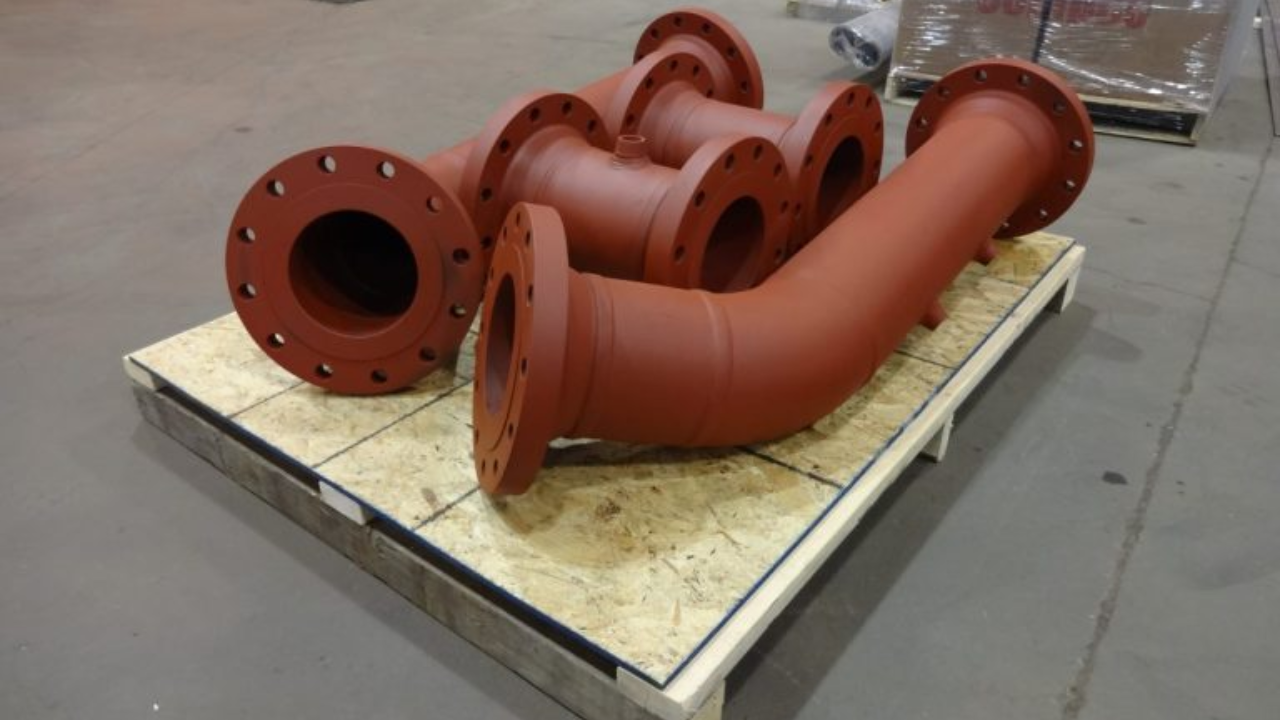Any industrial piping project depends on efficient, accurate, and timely work to be successful. Pipe spools make a big difference in helping these goals be met. Though little attention is given to them outside engineering, pipe spools are key to connecting different pipes in large networks. What is a Pipe Spool- Flange Pipe Spool/ Spool Pieces and what it does and why it matters in fabrication? Also shows how huge projects ensure consistency, safety, and cost-effectiveness.
What is a Pipe Spool?
A pipe spool describes a unit of a piping system made by welding or mechanically connecting pipes, flanges, elbows, tees, and other components in an organized workshop setting. These spools are built to spec with help from detailed isometric and project drawings. After completion, they are taken to the construction site and hooked into the main piping. Each spool can serve as a ready-to-be-added part of the finished network.
How the Part Comes Together
Pipe spools are manufactured in specialized workplaces with the equipment, machines, and trained experts. At the beginning of the process, we look at all the engineering plans and documents that show dimensions, materials and welding needs. Depending on the designs, the needed materials are cut, fitted, and closely welded according to strict standards and tolerances. Inspecting welds using non-destructive methods such as X-rays or ultrasonics is common. Once checked, spools are thoroughly cleaned, painted if necessary, given project information tags, and packed for moving to the job site.
Analytical support for the planning and launch of a project
Pipe spools make projects more efficient by cutting down the work needed on-site during installation. It is easier to obtain high precision, fast results, and make fewer errors by creating the structure in a shop than by welding on-site. With production in a controlled setting, bad weather and other environmental elements are less likely to affect when work gets done. Consequently, projects are completed quicker and setting up the prefabricated content on-site is equivalent to assembling it instead of working on a big manufacturing task.
Bringing Quality and Safety to the Next Level
Because of quality control, using prefabricated pipe spools is very beneficial. Using fabrication makes it possible to use the same procedures and have inspectors watch over the quality, something that can be tough in field settings. Because a controlled workshop allows for better welding, joints are less likely to have flaws and are usually very strong. As a result, the piping system will be more reliable and safe over the long run. When minimal welding is needed at installation locations, the possibility of accidents decreases.
Making Products More Efficient
Pipe spool fabrication also results in savings and improved resource use. Accurate fabrication results in a lower risk of extra work or lost items due to errors. Using the same procedures and stocking materials in bulk at fabrication shops helps reduce resource expenses. As laborers are needed less at the construction site, both labor charges and work management are lowered. Projects are designed more efficiently and save money when producers limit fabrication on-site.
Interaction between Management, Engineering, and Design
Coordination among engineering, design, and fabrication teams is very important for the successful use of pipe spools. Proper assembly of spools requires accurate and detailed isometric drawings. The drawings show dimensions in millimeters, indicate where welds should be, and reveal necessary parts. An error in the design of the part can cause problems in manufacturing that may result in parts not fitting together correctly. As a result, ensuring that all stakeholders collaborate and communicate from the beginning allows the spools to be compatible with the whole system.
How Software Helps Various Industries
Pipe spools play a significant role in many sectors, such as oil and gas, petrochemicals, power generation, water treatment, and shipbuilding. Because piping systems are problematic, all these sectors use highly reliable and precise equipment. This is possible because using prefabricated spools offers a steady standard and minimizes time spent on installation. The importance of pipe spools is increased, specifically in offshore and remote areas where field fabrication may be difficult.
Conclusion
Pipe spools are essential parts of today’s industrial piping networks. Manufacturing parts in advance helps guarantee the right results, speed, budget, and safety standards. Because most fabrication happens in the workshop, pipe spools ensure workers have better accuracy and higher efficiency on-site. The industry’s value is larger than simple convenience, as it impacts the outcome and endurance of advanced engineering projects. Once you understand pipe spools and their importance, it is clear how proper strategy and standard methods boost the overall result of a project.
